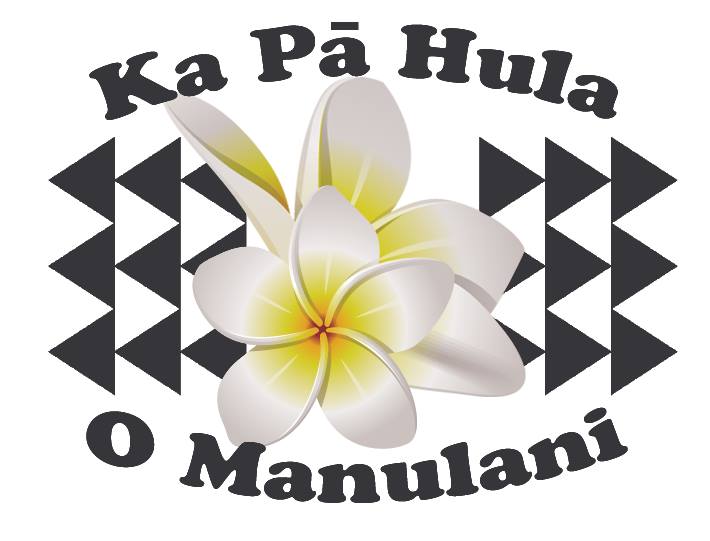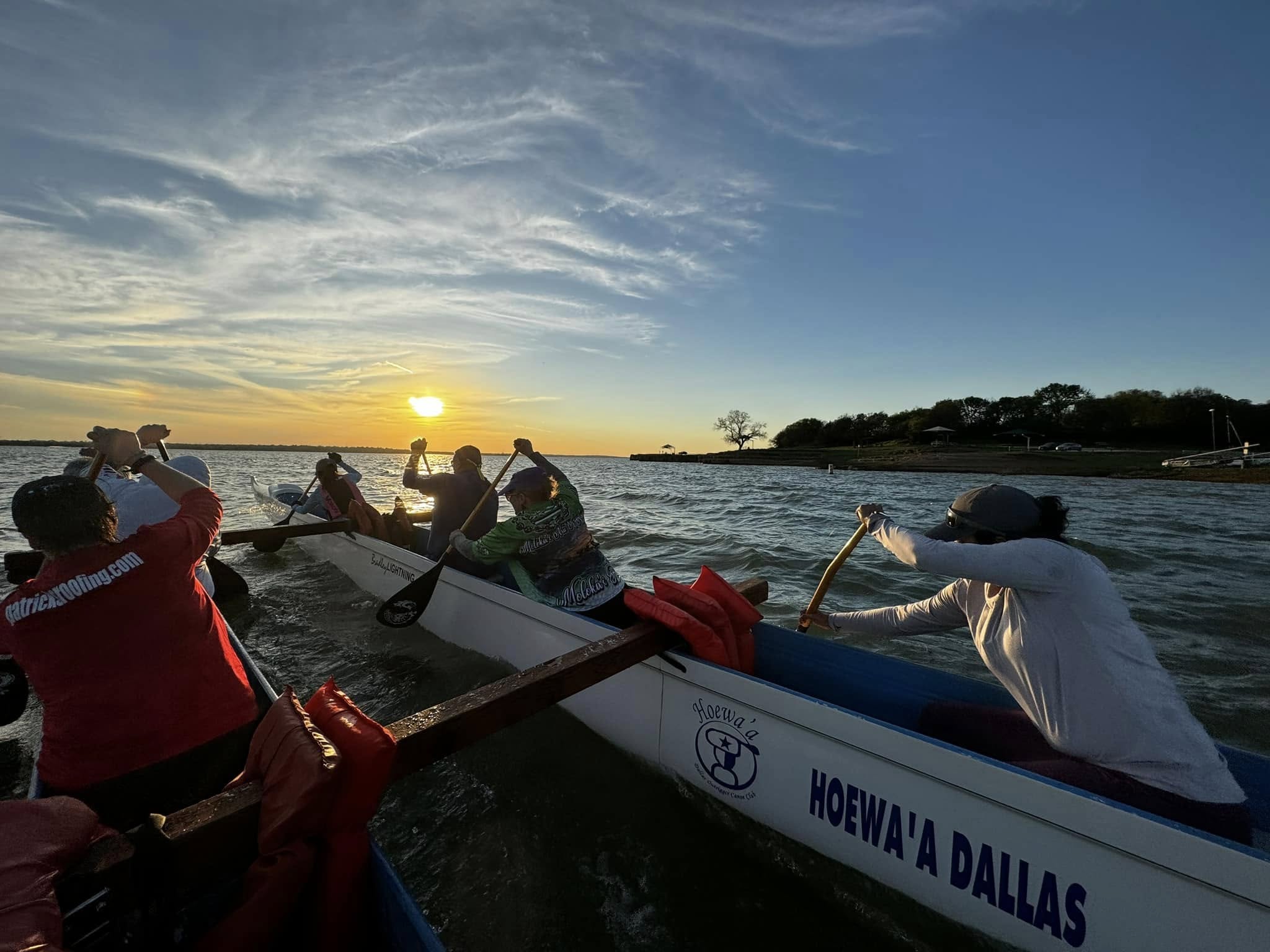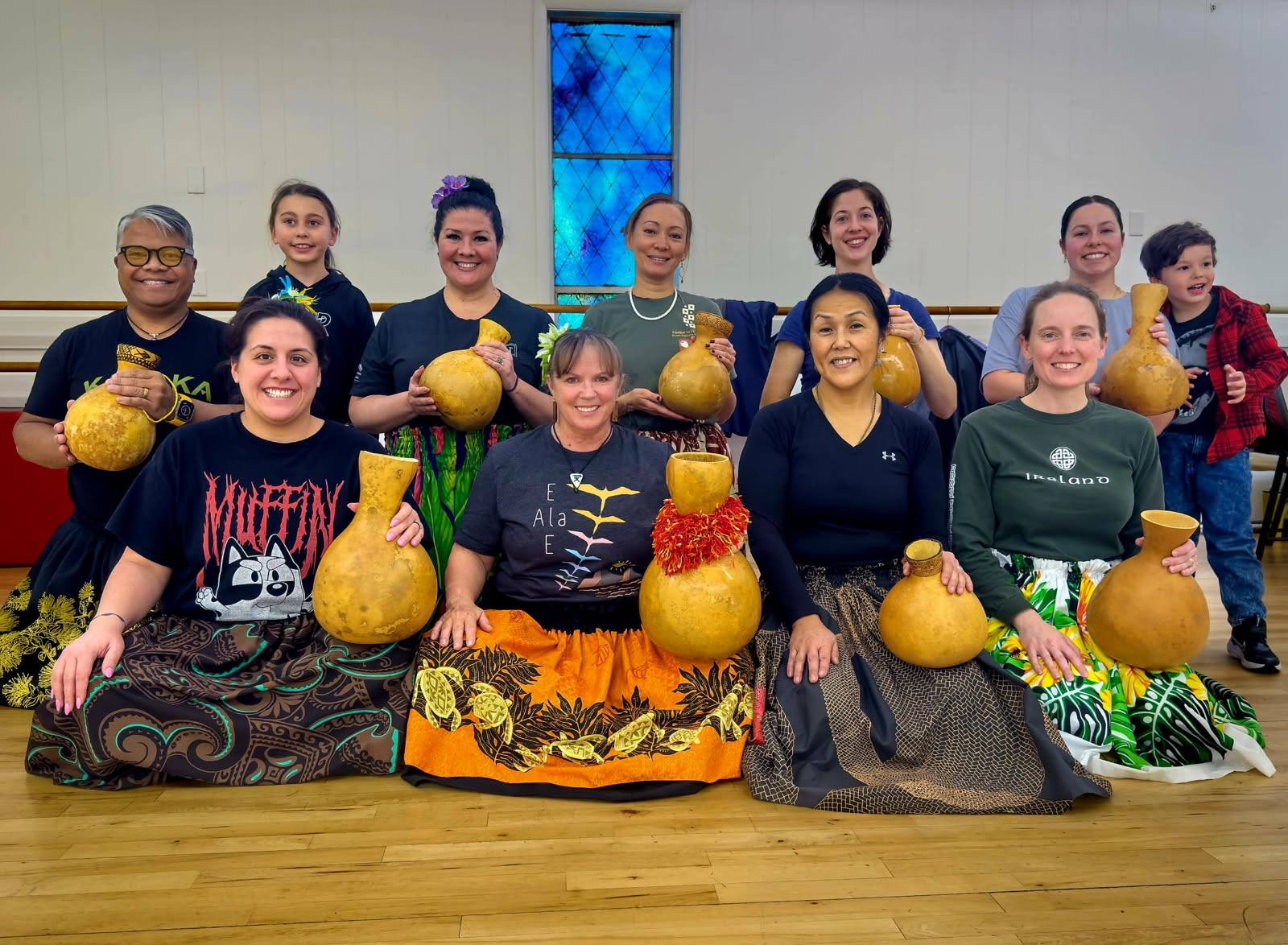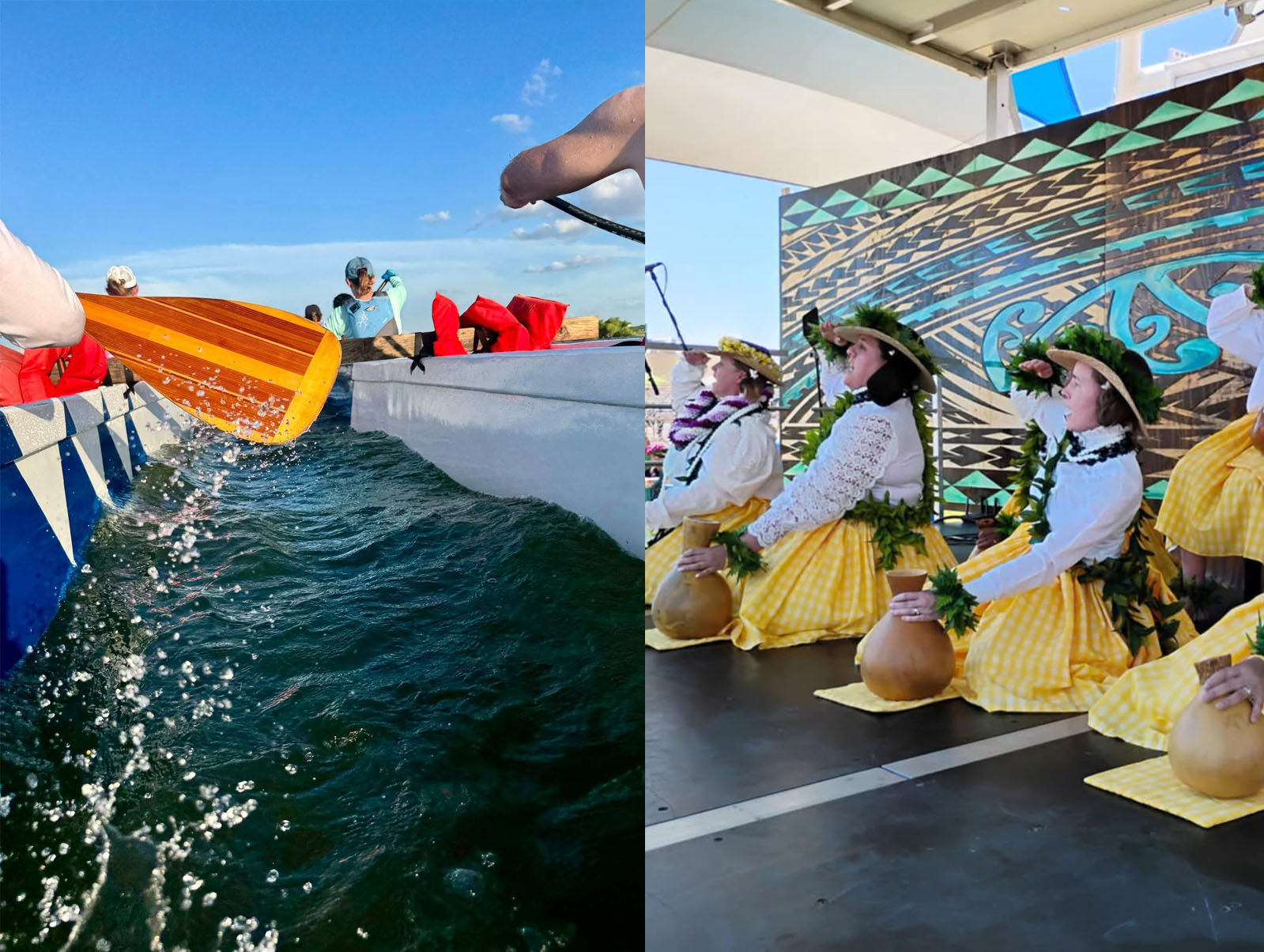We were lucky to catch up with Manu Birkmire recently and have shared our conversation below.
Manu, thanks for joining us, excited to have you contributing your stories and insights. Has your work ever been misunderstood or mischaracterized?
I’ve encountered misunderstandings of Hawaiian culture on many occasions, often stemming from stereotypes, incorrect information, or simply a lack of knowledge. As a cultural practitioner, Kumu Hula (Hula Master) of Ka Pā Hula O Manulani, and a paddler with Hoewa’a Dallas Outrigger Canoe Club, I consider it my kuleana (responsibility) to help educate others and empower them with knowledge rather than criticize.
During one particular community hula performance, I took a few moments to host an informational session, sharing insights about the rich history and cultural significance of hula. I explained that hula is not just a dance but a vital form of storytelling that conveys the histories and traditions of the Hawaiian people. I shared how each motion in hula is intertwined with language, representing more than just dance steps, but rather a deep, meaningful form of communication.
Additionally, I highlighted the importance of cultural protocols that govern hula performances. For instance, I talked about the need for respect for the ʻāina (land) and the ancestral spirits, emphasizing that every performance is an offering, a way to honor heritage and the natural world. I illustrated this connection between the dancers and the environment by sharing stories of how hula has been influenced by the sights, sounds, and rhythms of Hawaii’s landscapes.
By the end of the performance, many attendees expressed a newfound appreciation and understanding of hula as a living art form that combines spirituality, history, and culture. Some audience members even mentioned how seeing hula through this lens transformed their perception, prompting them to engage more deeply with Hawaiian culture and traditions. This experience reinforced my belief in the importance of education in preserving and promoting cultural practices like hula.
Hawaiian outrigger canoe paddling is a dynamic and multifaceted activity that goes far beyond mere recreation. Rooted deeply in Polynesian culture and history, this sport embodies the spirit of navigation that once allowed ancient Polynesians to explore vast oceanic distances. The outrigger canoe is not just a vessel; it symbolizes the connection between land and sea, as well as the skills of those who have mastered its use over generations.
Many people unfamiliar with this tradition often think of outrigger paddling as a competitive sport without recognizing the essence of the practice. What is often overlooked is the profound sense of community and the cultural exchanges that occur when paddlers come together. During practices, team bonding and the sharing of stories are as significant as physical training. Local events and festivals provide opportunities for cultural celebration, where paddlers not only compete but also educate others about their heritage and the traditions that inform their practices.
Moreover, the sport emphasizes teamwork and collaboration. Each paddler plays a vital role, and the success of the crew relies on their ability to work in unison. The coordination required to paddle effectively cultivates trust and respect among participants, reinforcing the idea that outrigger paddling is a collective effort rather than an individual pursuit.
As someone who participates in this tradition, I take pride in sharing its deeper meanings and educating others about its cultural significance. Many individuals express their gratitude for these insights, as they open their eyes to a richer understanding of not just outrigger paddling but also the broader tapestry of Polynesian heritage.
These types of interactions highlight the crucial role of education in bridging cultural gaps. By fostering a space for learning, we can cultivate respect and appreciation for diverse traditions. Each one of us has a part to play in this process, whether by sharing knowledge or simply being open to learning. In doing so, we strengthen the connections that bind us and deepen our understanding of the world around us.
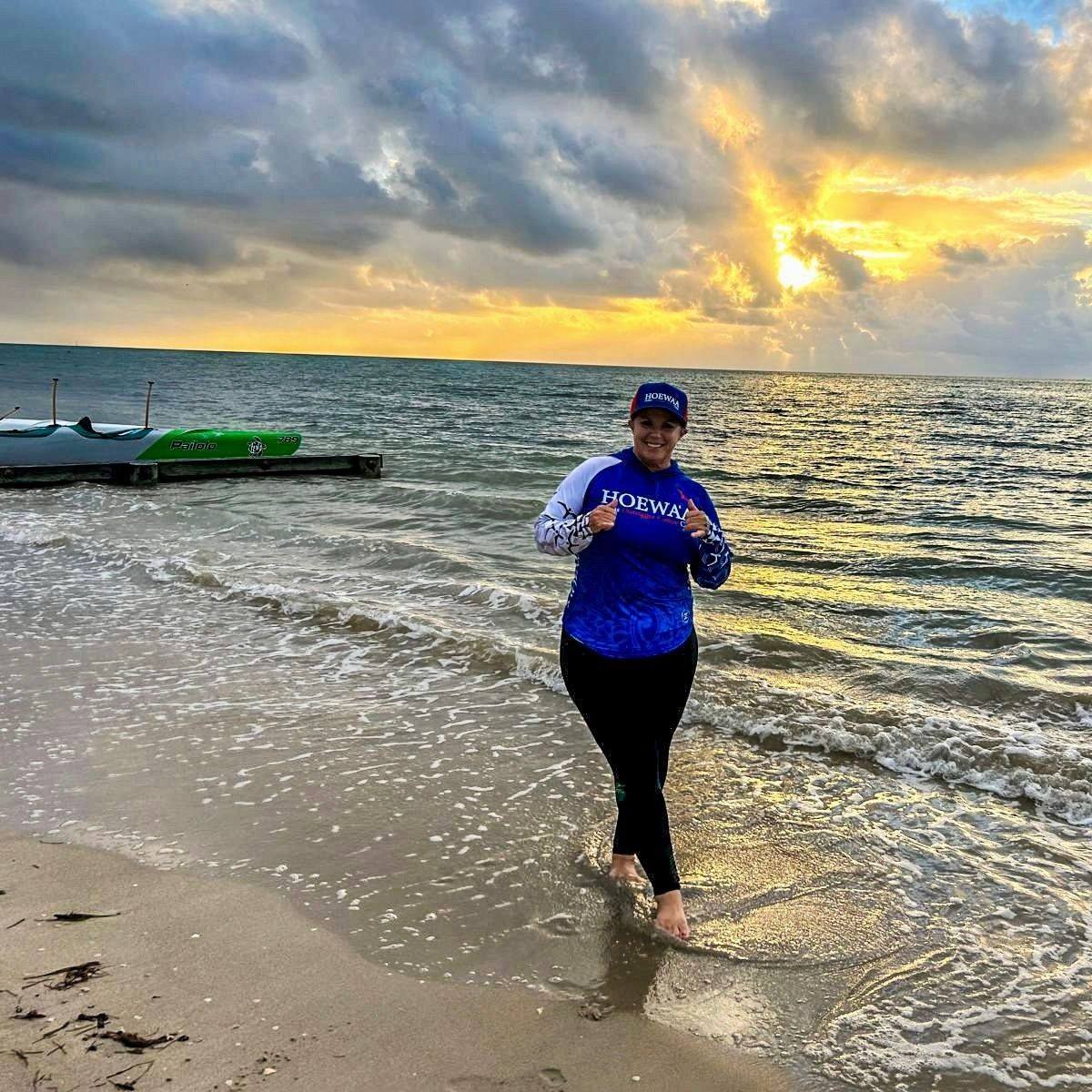
As always, we appreciate you sharing your insights and we’ve got a few more questions for you, but before we get to all of that can you take a minute to introduce yourself and give our readers some of your back background and context?
I’m excited to share a little about my journey and the passions that drive me. I’ve always had a deep connection to Hawaiian culture, which has ultimately led me to teaching hula and becoming a member of Hoewa’a Dallas Outrigger Canoe Club in Texas.
My path into hula began during my childhood, when I was taught the art in school and my family. During my college years, I moved to Florida and set aside my hula to enjoy life, attend school, work, and pursue other interests. I ended up in Texas, never knowing there was a large Polynesian community here until I went to a festival and met the enigmatic figure who would become my Kumu Hula (Hula Master) and restore and grow my love for hula and Hawaiian culture. The more I learned, the more I wanted to be a part of preserving and sharing the rich traditions of Hawai’i. After almost 20 years of training, my Kumu graduated me from student to teacher through traditional Hawaiian ceremony and protocol. I have been teaching for 17 years. My students not only learn hula but also the language, music, and history behind the dance. We celebrate the Hawaiian values of aloha, ‘ohana (family), and mālama (to care) in all that we do.
Joining Hoewa’a Dallas Outrigger Canoe Club 15 years ago was another pivotal, life-changing moment for me. Paddling, much like hula, is rooted in Hawaiian tradition and is a meaningful way to honor teamwork, discipline, and respect for the water and nature, all of which resonate deeply with Hawaiian values. Through paddling, we pay homage to the ancient navigation practices of our ancestors. One of the highlights of being part of Hoewa’a is participating in races and community paddling events. These gatherings not only bring together paddlers from different backgrounds but also celebrate our shared love for the water, the sport, and the Hawaiian culture. It creates a palpable sense of camaraderie as we cheer each other on, whether we’re competing or simply enjoying a day on the water.
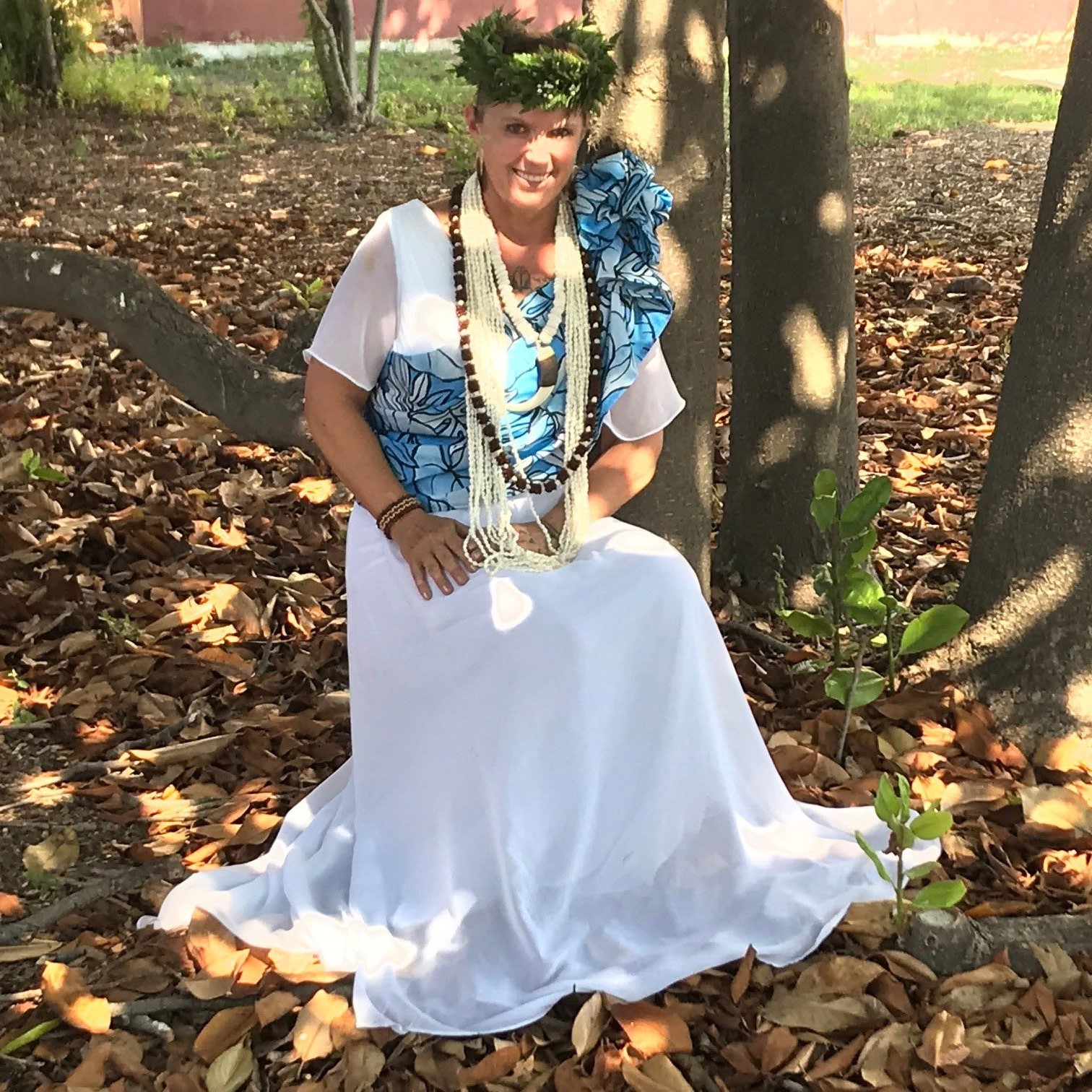
Is there mission driving your creative journey?
My goal is to foster a deeper understanding and appreciation of Hawaii’s rich heritage and traditions. I believe it is essential to share authentic practices, stories, and histories that honor the values and experiences of the Hawaiian people. Hawaii is a place of great diversity, with unique languages, art forms, sports, and spiritual beliefs deeply rooted in its history. Understanding the significance of traditional practices allows us to appreciate the depth of this culture. It is also vital to recognize the impacts of colonization and globalization on the Hawaiian way of life and work towards preserving this unique heritage for future generations.
Creating connections through cultural exchange can help ensure the true essence of Hawaiian culture is recognized and celebrated. This collective responsibility calls on each of us to engage respectfully with this culture, advocate for its preservation, and acknowledge its ongoing evolution. Together, we can honor the past while supporting the vibrant future of Hawaii’s heritage and traditions.
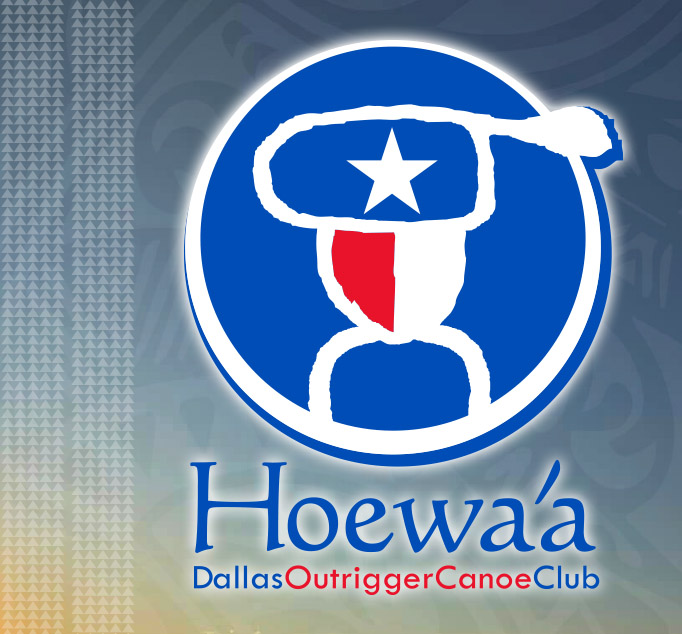
What’s the most rewarding aspect of being a creative in your experience?
Sharing Hawaiian culture is rewarding because it helps preserve rich traditions and history, ensuring they are passed down to future generations. This sharing fosters understanding and appreciation, promotes respect, and helps break down stereotypes. It encourages meaningful connections, strengthens pride in one’s heritage, and underscores the importance of cultural preservation. By connecting with our heritage, we cultivate a sense of identity and pride, both personally and within the community.
Through teaching, sharing, and engaging with others, I can build these meaningful connections and strengthen community ties. Ultimately, it’s about creating relationships, sharing values, and celebrating the unique aspects of Hawaiian culture while inviting others to engage and learn.
Contact Info:
- Website: https://www.hdocc.com
- Facebook: https://www.facebook.com/manulanihulahalaudallashula
- Other: https://www.facebook.com/hoewaa
